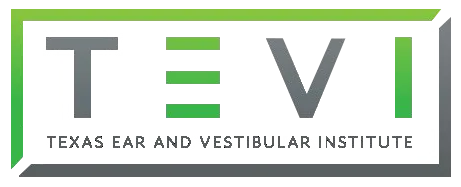
Managing Vestibular Issues
Dr. Andrew Senchak of Texas Ear and Vestibular Institute (TEVI), located in McKinney, TX, is waiting to discuss your dizziness and inner ear disorders and uncover the possible conditions for these symptoms.
The Importance of the Inner Ear
Did you know that your inner ear has many delicate bones that conduct vibrations using tiny hairs called stereocilia through fluid-filled spaces in the vestibule and semi-circular canals, and these send electrical impulses to the auditory complex of the brain?
The ears are complex creations that also control your balance. The inner ear can experience several different disorders when it is damaged.
Disorders of the Inner Ear
According to TEVI, located in McKinney, TX, dizziness and hearing loss are symptoms associated with these conditions.
- Sensorineural is a common type of hearing loss. Repeated exposure to loud noises, some medications, diseases, or genetics can cause damage to the stereocilia. This damage causes permanent, non-reversible hearing loss.
- Tinnitus is ringing in the ears and may be related to hearing loss or destroyed stereocilia.
- Labyrinthitis is inflammation of the fluid-filled parts of the ear structure, causing unsteadiness, hearing loss, and ear ringing.
- Vertigo is unsteadiness or the feeling of spinning, accompanying other illnesses.
- Vestibular neuritis is an inflamed vestibulocochlear nerve causing nausea, unsteadiness, and vomiting.
- Benign paroxysmal positional vertigo (BPPV) occurs due to crystal shifting from your vestibule into your semi-circular canals. It can heal on its own but can cause a sense of vertigo due to sudden position changes.
- Ménière's disease is a rare disease involving episodes of vertigo and is non-curable. Treatment consists of managing the condition's symptoms.
Diagnosis/Treatment of Inner Ear Disorders
Diagnosing inner ear problems requires vestibular testing using sensors to calculate how your body uses your sense of balance. Your doctor may also monitor your eye movements to see how your vestibule works.
Audiometry testing calculates how much or how little hearing loss you have present. It is an important baseline test to monitor further hearing loss. Auditory brainstem response (ABR) testing involves sensors on your forehead or behind your ears to measure how your auditory nerve responds to stimuli. Otoacoustic emissions test the efficiency of your outer ear cells.
There is no treatment for the loss of stereocilia. You can effectively manage symptoms such as unsteadiness and vertigo with medication. Your doctor may suggest physical therapy for balance issues. Management of symptoms becomes essential for optimal ear health.
Schedule Your Appointment Today
Call Dr. Senchak of Texas Ear and Vestibular Institute (TEVI), located in McKinney, TX, at (469) 678-2211 an expert in dizziness and hearing loss. We want to help you increase your quality of life and eliminate your symptoms.

